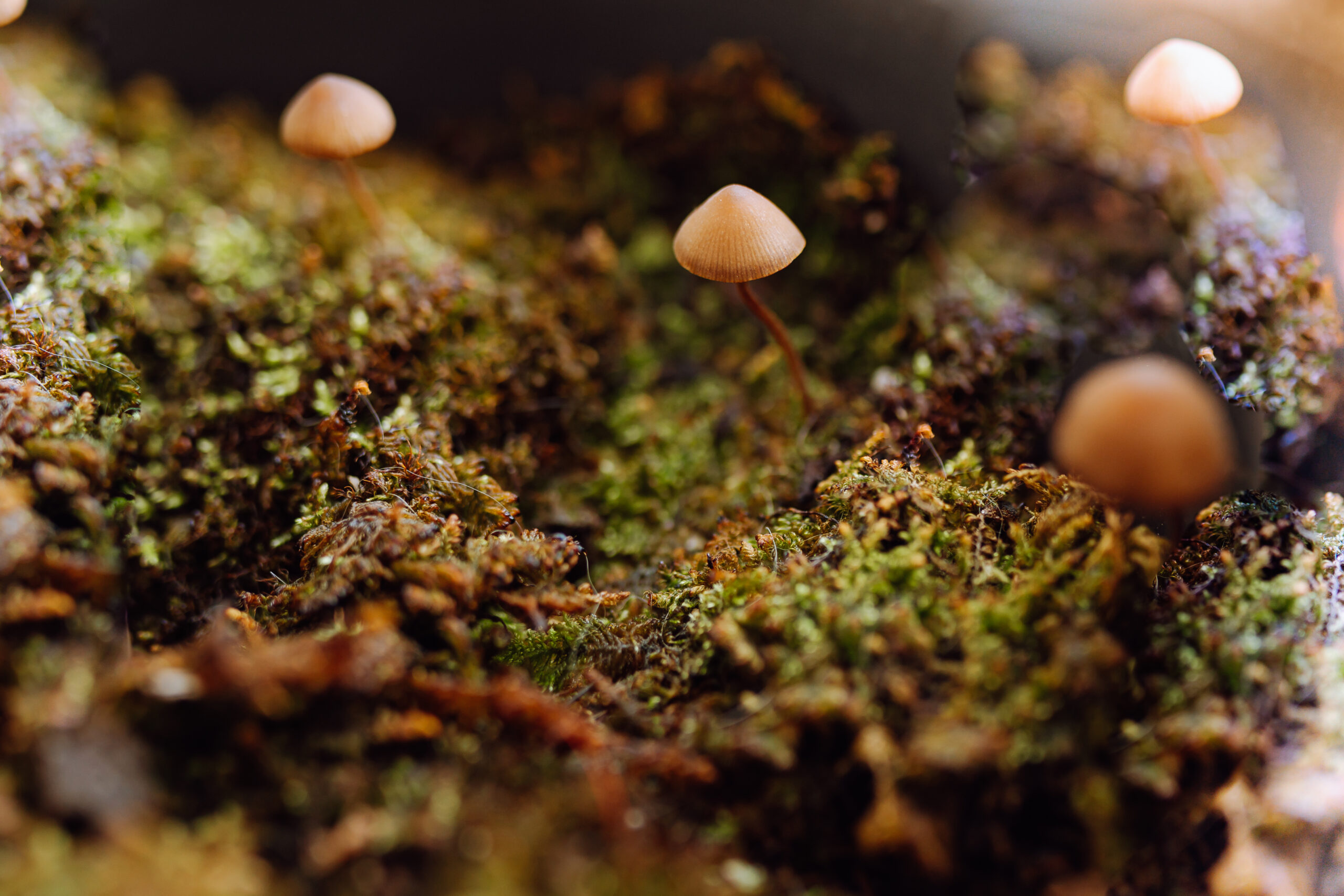
Sustainable Farming with Mushrooms: A Green Revolution in Agriculture
As sustainability becomes an essential part of modern agriculture, mushrooms are taking the spotlight as a uniquely eco-friendly crop. From their ability to grow on agricultural waste to their minimal land and water needs, mushrooms present an exciting opportunity for sustainable farming. Let’s dive into how mushrooms are reshaping agriculture and contributing to a greener future.
1. Efficient Use of Resources
Mushrooms are incredibly efficient at converting organic waste into nutritious food. Unlike many traditional crops that require large amounts of land, water, and fertilizers, mushrooms can thrive on substrates made from agricultural byproducts like straw, sawdust, and coffee grounds. This process not only reduces waste but also repurposes materials that would otherwise end up in landfills.
2. Reduced Land and Water Usage
Compared to other forms of agriculture, mushroom farming requires minimal land and water. Mushrooms can be grown vertically, allowing farmers to maximize space in urban and indoor environments. Additionally, mushroom cultivation uses significantly less water than traditional crops, making it an ideal solution for regions facing water scarcity. With less impact on natural resources, mushroom farming is an efficient and sustainable approach to food production.
3. Low Carbon Footprint
Mushroom farming produces a smaller carbon footprint compared to many other agricultural processes. Because mushrooms don’t rely on sunlight to grow, they can be cultivated indoors in climate-controlled environments, reducing the need for pesticides and chemical fertilizers. As a result, mushroom farming emits lower greenhouse gases, making it a more environmentally friendly option for large-scale food production.
4. Soil Health and Carbon Sequestration
Mushrooms contribute to soil health by breaking down organic matter and releasing nutrients back into the soil, which can improve soil structure and fertility. Some species of mushrooms also play a crucial role in carbon sequestration, trapping carbon in the soil and helping to reduce atmospheric CO2 levels. By supporting soil health and carbon storage, mushrooms are valuable allies in combating climate change.
5. Biodegradable and Eco-Friendly Products
The sustainability of mushrooms extends beyond food. Mycelium, the root-like structure of mushrooms, is now being used to create biodegradable alternatives to plastic and other non-renewable materials. From packaging to furniture and building materials, mycelium-based products are fully compostable and environmentally friendly. This innovation has the potential to revolutionize industries that traditionally rely on plastics, contributing to a significant reduction in plastic waste.
6. Urban and Vertical Farming
Mushrooms are ideal for urban and vertical farming, as they can be grown in controlled indoor environments with minimal space. Vertical mushroom farms are now emerging in urban areas, turning unused spaces into productive agricultural sites. By bringing food production closer to cities, vertical mushroom farming reduces the need for transportation, lowers carbon emissions, and supports local food systems. This approach not only provides fresh, local produce but also reduces the strain on rural agricultural lands.
7. Waste Reduction and Circular Economy
Mushroom farming is a great example of circular economy principles in action. The agricultural waste used as a growing medium for mushrooms can later be composted and returned to the soil, closing the nutrient loop. Additionally, mushroom byproducts can be repurposed for animal feed or used as soil conditioners, reducing overall waste. This sustainable cycle aligns with the principles of a circular economy, where resources are reused and recycled rather than disposed of.
8. Mushrooms as a Protein-Rich Meat Alternative
As the demand for plant-based diets grows, mushrooms are becoming an increasingly popular meat substitute due to their protein content and meaty texture. Mushroom varieties like portobello and shiitake can serve as satisfying alternatives to meat, reducing the environmental impact associated with animal agriculture. Lowering meat consumption and replacing it with mushrooms can decrease land use, water use, and greenhouse gas emissions, making a meaningful impact on the environment.
9. Supporting Biodiversity and Ecosystems
Mushrooms play a crucial role in maintaining biodiversity and supporting ecosystems. Fungi contribute to nutrient cycling, decompose organic matter, and even help plants absorb essential minerals from the soil. By promoting mushroom farming, we support ecosystems’ natural processes, encouraging a balanced environment that benefits other plant and animal species. Sustainable mushroom cultivation can thus help restore ecosystems and promote biodiversity.
Conclusion
Mushroom farming offers a sustainable solution to many environmental challenges facing agriculture today. From resource efficiency and waste reduction to supporting biodiversity and the circular economy, mushrooms are leading the way toward a greener and more resilient future. As the demand for sustainable and plant-based foods grows, mushrooms stand out as a versatile and eco-friendly choice, providing nourishment while benefiting the planet. Embracing mushroom farming could be a game-changer in our journey toward sustainable agriculture and environmental stewardship.